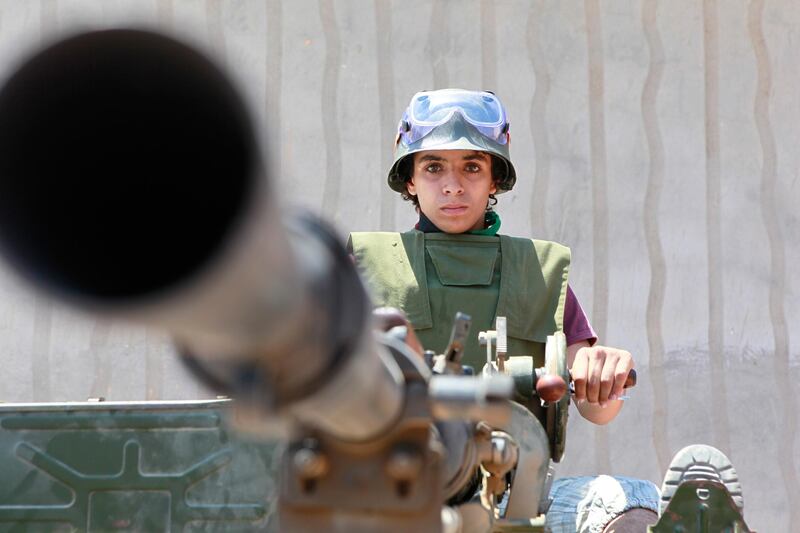ZLITEN // Since the rebellion against Muammar Qaddafi erupted nearly six months ago, there have been few respites from the back-and-forth fighting that has ranged across vast tracts of Libyan territory and taken thousands of lives.
The first day of Ramadan, however, provided a rare reprieve for anti-Qaddafi fighters encamped near this city 160 kilometres east of the capital, Tripoli. And with the lull came conversations that for Muslims everywhere had a familiar ring.
"The hardest part is the cigarettes," said Ibrahim Tabat as he took taking advantage of the lull in fighting to play chess under the limited shade of a tree. "Definitely the cigarettes!"
Video: Searching for the Ramadan moon
Although the moon wasn't visible last night, Nezar Hezam Sallam was present with his mobile observatory unit to educate onlookers about the significance of the event.
For his opponent across the chessboard, Mamoud Baiyo, thirst was the most difficult burden to endure. For all the customary litanies of abstinence and sacrifice, a war was still going on. In the run-up to the start of the holy month, Libya witnessed some of its most intense fighting in months.
The day before, government tanks overran the rebel front-line, killing 20 people and wounding 37 others. Monday's lull was then broken the following morning when mortars fired by government soldiers killed at least three rebels and wounded more than 20 others. The hospital in Misurata 60km to the east, where the casualties were transported, again descended into the usual wartime chaos.
In their makeshift camps on the outskirts of Zliten, the rebels said they were waiting for the people of the city to rise up. When that happens, they said, they would move in to support them.
"We need to make sure we take this city to save the people, not to risk their lives," said Fathi Mohammed, a rebel officer.
Underlying Mr Mohammed's declaration was the worry that the rebellion has been now perceived by many Libyans as intercity warfare, with its aim to advance local interests and not to topple Col Qaddafi.
"Most of Zliten's people are against Qaddafi, we know that. But war causes damage and takes lives," said Lutfy Alamin, a respected rebel fighter. "We do not want them to say, 'The people of Misurata did this to our city'."
Amid the constant speculation about the progress of the war, the rhythm of the holy month remains inexorable. In Misurata, women prepared iftar meals to send out to the rebel camps. Volunteers by the hundreds gave their time and cooking pots for makeshift kitchens in schools across the city. Local families and businesses provided the food.
Back near Zliten, the insurgents slogged on, knowing that the first few days of fasting were tough but after that, their bodies would adjust.
Despite swirling sands and sweltering heat, they vowed to observe the fast through the month, feeling superior to Colonel Qaddafi's forces, who have been excused from fasting by order of the government.
"We are very excited because of Ramadan," said Mr Tabat, 22. "It is a big thing for us. We do not do anything bad during Ramadan, so we know that Allah will help us win."
Meanwhile, Mr Tabat and his fellow rebels took shorter shifts of four to five hours and imagined the day not far off when not only the people of Zliten came over to their side, but when Tripoli fell into their hands.
"You know all these guys don't worry about water or food," said Adel Elsedeeg Tantoon. "The only target is to kill Qaddafi. That's what we want."





